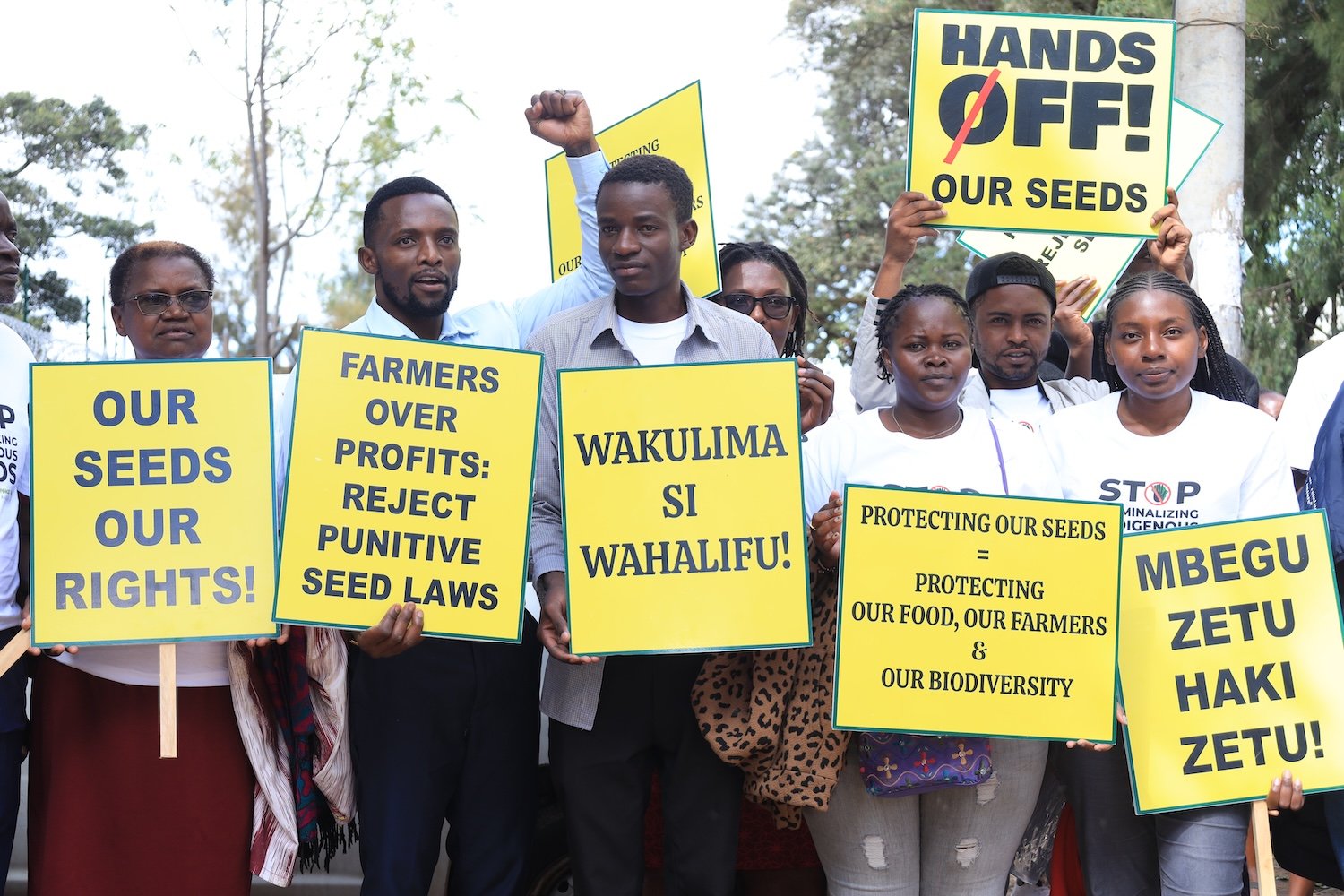Over the past years, Africa’s population has more than doubled, while available arable land has only increased by approximately 10%. To meet the growing food demand, vast stretches of land are being redeployed. This agrarian transition has transformed the lives and food security of millions.
Industrial Agriculture entails destruction of large forest areas, biodiversity loss and aggravation of the climate crisis, accounting for 25% of global greenhouse-gas emissions. This is made worse by the demand for land for oil, rubber and other plantations. Mainly catering for foreign demand, it raises legal questions on how land is acquired by multinationals and elites.
In Cameroon, large scale agriculture plantation has been promoted since the colonial era and following independence, by successive governments. The government assumes industrial agricultural projects bring foreign direct investment, create local employment and promote infrastructure development in the country. More often it leads to land grabbing. And with it comes forest destruction and the displacement of communities.
Cameroon’s growth and empowerment strategy within the government vision 2035 sets to make it an emerging country, with a focus on agriculture investment. The fate of Cameroon’s forests and other agricultural land is particularly important to local and indigenous communities. This means it is not only an environmental issue, but also a human rights issue. Industrial agriculture which is often seen as a panacea for a struggling economy generally comes with more troubles.
Globally, concern for health, human rights and environmental consequences of industrial agriculture is growing. Stories about health and environmental impacts of chemical fertilisers and pesticides such as soil, water, and food contamination are increasingly featured in the media. infact, there’s a growing realisation that the food system through the approach of industrial agriculture needs a rethink.
More and more people are questioning the quality of their food, people want to know their food is safe and healthy. There is also a global push to ensure that governments and companies are not exacerbating climate change and biodiversity loss by destroying forests for industrial agriculture.
The way forward requires transformative changes made to the way food and other agricultural commodities are produced.
One practical solution at the local level is shifting to Ecological Agriculture. Ecological Agriculture also known as agroecology is not a new practice; it combines local farmers’ knowledge with the most recent scientific research to increase yields without negatively impacting the environment. It is a farming system where farmers harness their traditional knowledge about water, soil, and pest control and use it to improve their farmlands and produce. Ecological Agriculture allows farmers to develop their own farm inputs, such as organic manure and indigenous seeds that are resilient to changing climate conditions.
There are many studies on ecological approaches, but very few of them address the financial impact on farmers. In 2014, Greenpeace surveyed small-scale farmers, recording data from regions where the International Research Institute working on Insect Physiology and Ecology in Kenya and the World Agroforestry Centre in Malawi are promoting these techniques.
The results of this fieldwork demonstrate the profitability of agroecology, free of any chemical pesticides or fertilisers. In Kenya, farming communities adopting innovative eco-agro practices like push-pull technology enjoyed yields averaging 2,347kg per acre, whereas the ones using chemicals were struggling with an average yield of less than half that. Overall, smallholder farmers practising these techniques were found to also achieve higher incomes than those using chemicals.
Greenpeace has not yet conducted such studies in Cameroon. There are some advances made in this direction, but the full potential still needs to be explored. In any case, the acceptance of ecological farming in Cameroon and elsewhere begins at the local level. It is there that its advantages become clear for food security with respect to productivity, customary rights, natural resources, employment, and health.
Ecological farming empowers local smallholder farmers to actively contribute towards their economic growth while at the same time protecting the integrity of the forest and its biodiversity – critical to maintain climate stability and prevent runaway climate change. It enables them to use locally available resources efficiently and sustainably, to grow culturally appropriate food for everyone.
African governments need to respond to this reality and seize opportunities such as ecological agriculture on a national scale. This includes subsidies for ecological farming and organic fertilisers instead of agro-chemicals, as well allocating budget towards research and capacity building of local agricultural extension officers.
A transition towards sustainable land use is essential for protecting forests and biodiversity, for fixing our broken food systems, and for defending the rights of vulnerable communities. A good start involves upscaling ecological agriculture, but the transition will not be complete without determined government action.



